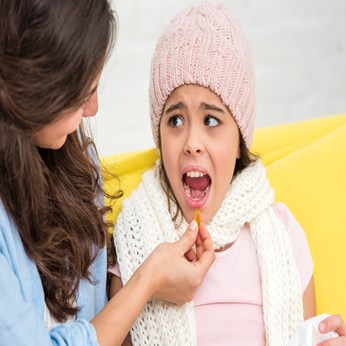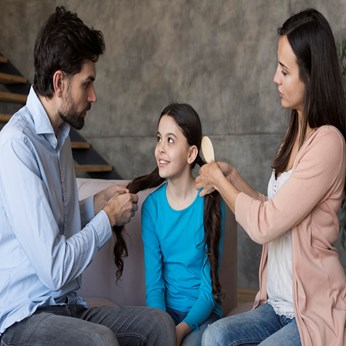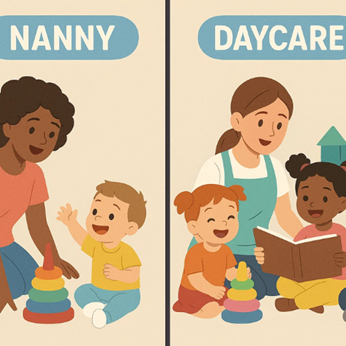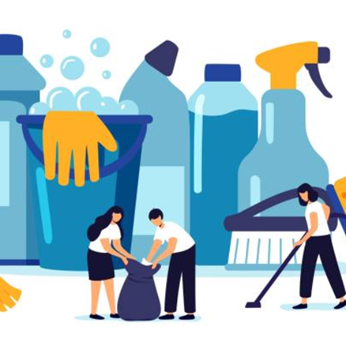Signs and Symptoms of Strep Throat in Children: What Parents Should Know

When your child has a sore throat, it’s easy to brush it off as “just a cold.” But sometimes, that irritation could be more than just a passing bug. Strep throat, caused by group A Streptococcus bacteria, is one of the most common throat infections in children — and it's important for parents to spot it early.
Here’s a calm, straightforward guide to help you understand what to watch out for, and what to do when strep sneaks into your home.
What Is Strep Throat, Really?
Strep throat isn’t your average sore throat. It’s a bacterial infection that spreads easily, especially in places where kids are constantly around each other — schools, playgrounds, daycare centers, and anywhere else there’s lots of shared space (and sneezes!).
Common Signs and Symptoms
Here’s how to tell if it’s something more serious than just a tickle in the throat:
- Sudden sore throat: It often comes on quickly, unlike the slow creep of a viral cold.
- Pain while swallowing: Even water may feel like a struggle.
- Fever: Often above 101°F (38.3°C).
- Swollen tonsils: Sometimes with white patches or streaks of pus.
- Tiny red spots on the roof of the mouth.
- Swollen lymph nodes: Especially in the neck area.
- No cough: Ironically, the absence of a cough can be a giveaway — colds usually bring one, strep usually doesn’t.
- Tummy aches, nausea, or vomiting: Especially in younger children.
When to Call the Doctor
If your child shows several of the above symptoms, especially the combination of sore throat, fever, and white patches on the tonsils — it's time to check in with a doctor.
A rapid strep test or throat culture will confirm if it’s strep. If positive, antibiotics will likely be prescribed, which can help them feel better faster and reduce the risk of complications.
Caring for a Child with Strep Throat
If your child is diagnosed with strep:
- Follow the full course of antibiotics, even if they feel better early.
- Keep them home from school or daycare for at least 24 hours after starting antibiotics.
- Encourage plenty of fluids and rest.
- Use warm soups, soothing drinks, or popsicles to ease the discomfort.
- Make sure they use their own utensils, towels, and bottles to prevent spreading the infection.
Prevention Tips
- Teach your child to wash their hands regularly.
- Encourage them to cover their mouth when sneezing or coughing.
- Avoid sharing food, drinks, or toothbrushes with others.
While you can’t bubble wrap your kid against every germ out there, building strong hygiene habits can make a big difference.
How Sulekha Care Services Can Help
From trusted pediatricians and caregivers to nanny support and after-school help, Sulekha Care Services connects you with professionals who understand your child’s health and wellbeing.
Whether you’re looking for someone to support your family during recovery, or simply need guidance from experienced care providers, Sulekha makes it easy to find the right help — right when you need it.
Take the next step toward your goals
Share your requirement and find the best care providers in your area
-
Looking for a caretaker’s job? Build your profile and get in touch with families in your vicinity.
-
Discover nannies, babysitters, cooks, housekeepers, pet sitters, and elder care under one roof.
-
Get all the support you need to run a successful care center.
-
Search for appropriate centers near you depending on your needs.
Care Corner Insights: Blog Library

When do newborns start smiling? All about this lovely baby milestone
There's perhaps no moment more magical in early parenthood

Learning through play: How it helps your child's growth
As parents, we often find ourselves caught between wanting our children to have fun and ensuring they're learning and developing properly. The good news? You don't have to choose between the two. Play-based learning is one of the most powerful tools

Signs and Symptoms of Strep Throat in Children: What Parents Should Know
When your child has a sore throat, it’s easy to brush it off as “just a cold.” But sometimes, that irritation could be more than just a passing bug. Strep throat, caused by group A Streptococcus bacteria, is one of the most common throat infections i

Hindi/Tamil-Speaking Nannies in San Jose, CA: Where to Find and How to Screen
For many NRI families here, there’s a big question that keeps coming up: Where can we find a nanny who speaks Hindi or Tamil, understands our culture, and truly connects with our kids?

Trusted Babysitters Near Redmond, WA Tech Hubs: Background Checks & Hourly Rates for NRI Families!
The hum of laptops, endless Zoom calls, and the rush of deadlines — welcome to life in Redmond’s buzzing tech hubs. For many NRI families working at Microsoft, Amazon, and startups around the Eastside, there’s one silent question always hanging in th

Back-to-School Tips: A Simple Guide for Parents to Make the Transition Easier
The sound of zipping backpacks, the rush for last-minute school supplies, and the quiet gulp of “summer’s over” — yes, it’s back-to-school

What is Conscious Discipline? How Parents and Caregivers Can Use It
In a world full of parenting advice, sticker charts, and timeout corners, Conscious Discipline stands out as a game-changer. It’s not just a method—it’s a mindset. And for parents and caregivers

Nanny vs. Daycare in Naperville, IL: What Works Best for Indian Working Couples?
Hey Naperville Parents! Balancing work and family life is no small feat—especially for Indian working couples trying to juggle careers, household responsibilities, and parenting. One of the biggest decisions you’ll face? Choosing between a nanny or

Housekeepers in Sugar Land, TX: Deep-Cleaning Checklists for Indian Homes
Housekeepers in Sugar Land, TX: Deep-Cleaning Checklists for Indian Homes Indian cooking = flavor + spices + love… but also oil splatters and stubborn stains. Time to reset! Degrease stovetops, chimneys, and exhaust fans. Scrub countertops, tiles,

12 Easy After-School Snack Ideas for Kids Who Get Hungry Quickly
School’s out, and the hunger hits hard! If your little ones come home ravenous and ready to raid the kitchen, you’re not alone. After-school snack time is prime time for refueling, recharging, and maybe even sneaking in a little nutrition. So here ar